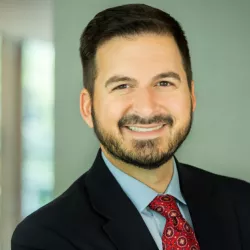Woodrow Hartzog is a Professor of Law at Boston University School of Law.
His research focuses on law and policy issues related to privacy, digital technologies, and artificial intelligence. He is the author of Privacy’s Blueprint: The Battle to Control the Design of New Technologies, published in 2018 by Harvard University Press and co-author of Breached! Why Data Security Law Fails and How to Improve It, published in 2022 by Oxford University Press (with Daniel Solove).
Professor Hartzog is interested in the law and theory of privacy and data protection and the rules around automation, algorithms, and robotics. His work has been published in numerous scholarly publications such as the Yale Law Journal, Columbia Law Review, California Law Review, and Michigan Law Review and popular publications such as BBC, CNN, The Guardian, Wired, Bloomberg, New Scientist, Slate, The Atlantic and The Nation. He holds a Ph.D. in mass communication from the University of North Carolina at Chapel Hill, an LL.M. from the George Washington University Law School and a J.D. from Samford University’s Cumberland School of Law.




